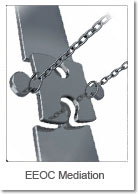Whistleblowers
Whistleblowers
A whistleblower is an employee, former employee, or member of an organization, especially a business or government agency, who reports misconduct to people or entities that have the power and presumed willingness to take corrective action. The misconduct may be a violation of a law, rule, regulation and/or a direct threat to public interest, such as fraud, health/safety violations, and corruption. One famous whistleblower is Jeffrey Wigand, who exposed the Big Tobacco scandal, revealing that executives of the companies knew that cigarettes were addictive and approved the addition of carcinogenic ingredients to the cigarettes. Wigand's story was the basis for the 1999 movie The Insider. Dr. Frederic Whitehurst exposed irregularities at the Federal Bureau of Investigation's Crime Lab. In Europe, Paul van Buitenen exposed irregularities in the European Commission.
There are many different laws providing protection or remedies to employees who submit complaints or claims involving the misconduct of employers.
Florida Whistleblower Act
In Florida, the Florida Whistleblower Act protects both private and public employees against retaliation for reporting certain types of illegal activity. The protection provided to employees under this law is different for employees of private companies as opposed to employees of state or local governments. The public sectors provisions are very technical and the time limits for asserting a claim are relatively short in comparison to the protection provided to private sector employees. If you have questions or concerns regarding the protections afforded by the Florida Whistleblower Act please contact us as soon as a problem arises so we can evaluate your situation and discuss with you the time limits that may apply to any potential claim.
False Claims Act Qui Tam Litigation
Under the False Claims Act, a person who blows the whistle is known as a relator. False Claims Act litigation, also known as Qui Tam litigation, is different from ordinary civil litigation in several ways.
Types of False Claims Act Cases
Procurement Fraud
(Where the Government buys goods or services from contractors)
Traditional False Claims Act procurement cases include delivering goods of inferior quality or in violation of inspection, testing, or other technical requirements. Procurement violations traditionally involve defense contracts, such as B-1 bombers, computers, tanks, and other traditional subjects of Government contracting. The Government, however, buys a wide array of goods. Supplying reconstituted powdered milk, not the fresh milk that the contract requires, is a False Claims Act violation. When Army mess halls received inferior quality meat, the False Claims Act was violated. Charging the Government higher labor rates than those agreed to in the contract is another scheme that can violate the Act. False billing cases can also involve misrepresenting indirect and overhead labor charges as direct labor. Collusive bidding schemes where bidders conspire to fix prices can also trigger False Claims Act liability.
The most frequently cited procurement case arising under the False Claims Act is United States v. Bornstein, 423 U.S. 303 (1976). In Bornstein, the prime contractor was to provide radio kits to the Government that met certain quality standards. The subcontractor supplying the tubes instead delivered substandard parts, which were mislabeled in an attempt to disguise their poor quality. Both the prime contractor and the subcontractor were liable.
Medicaid and Medicare Violations
Violations of Medicare laws and the Medicare Fraud and Abuse Statute also constitute violations of the False Claims Act. Hospitals, nursing homes, doctors, home health care agencies, pharmacies, and laboratories that seek and receive reimbursement for Medicare and Medicaid funds are Government contractors subject to the False Claims Act. Billing for services not rendered or misrepresenting the type of services rendered, can trigger liability under the False Claims Act. In addition, hospitals and nursing homes that provide substandard care may also be in violation of the False Claims Act. In fact, the largest False Claims Act qui tam settlement in 2001 involved violations related to prescription drugs.
Healthcare workers and families of nursing home or hospital patients should pay particular attention to the services provided. Not only can this improve the healthcare for patients and loved ones, but it also helps ensure that public Medicare and Medicaid monies are properly spent in accordance with the law and good medical practice.
Nursing Home Fraud
Healthcare workers and families of those in nursing homes should pay particular attention to services provided so as to ensure that family members and patients receive the quality of care to which they are all entitled. Additionally, bills should not be inflated for services that are inappropriate for a patient or which overstate the services provided. An example of these types of False Claims Act violations would be billing for individual psychotherapy by a physician (at a high billing rate), when in fact the patient, who was hearing-impaired and unable to effectively benefit from the therapy, instead actually attended a group therapy session conducted by a social worker (whose billing rate should be lower than that of the physician therapist).
Unless healthcare workers or family and friends of the patient speak up, such frauds can continue indefinitely, as the patients cannot themselves investigate or actively pursue the issue. It will be up to others to expose the wrongdoing and protect both the patients and the public Medicare and Medicaid funds.
Defense Contractor Fraud
Defense contracting fraud is perhaps the most traditional type of Government contract fraud addressed by the False Claims Act. Often, defense contracting fraud involves sophisticated, multi-billion dollar weapons systems and enormous Fortune 500 companies like GE, Boeing, Pratt & Whitney, Grumman, Lockheed Martin, etc. But, defense fraud can include ordinary items like computers, uniforms, vehicle parts, and office equipment.
Where the federal contract involves the procurement of a fleet of aircraft, vessels, or other vehicles or thousands of weapons like cruise missiles, the Government enters into a "prime contract" with a manufacturer or supplier. The prime contractor, in turn, enters into subcontracts with hundreds of other companies that manufacture and supply components or provide essential military goods and services.. All of these defense contractors are required to comply with the False Claims Act, even though they may not directly contract with the Government.
False Statements of Contract Compliance
Violations of contract terms or of statutes and regulations that are often required by Government contracts and set forth in what might otherwise be termed "boilerplate" sections of contracts, may be sufficient to violate the False Claims Act. Knowing presentation of claim for payment can be deemed equivalent to a false certification of compliance with such laws, rules, and regulations. If federal funding is conditioned on compliance with these contract provisions, such misconduct gives rise to a viable False Claims Act case. It should be remembered that claims may be false and the law violated, even though goods or services provided fulfill other contract specifications.
False Statements of Compliance with Labor, Environmental, Anti-Kickback, and Competitive Bidding Laws
The False Claims Act is an enforcement device for contract terms requiring compliance with other federal statutory schemes. Government contractors must abide by certain public policies like environmental protection laws, equal employment opportunity, small business procurements, federal wage law and competitive bidding laws. These laws can be enforced through the False Claims Act, despite the absence of a "private right to sue," because Government contracts contain many clauses beyond the technical requirements or descriptions of the products or services being procured. The contractual provisions themselves are derived from language in the Federal Acquisition Regulation (FAR) or from similar Government acquisition regulations. Often, a contract will only cite the applicable FAR provisions and, thereby, incorporate the regulation by reference. As a result of these broad-reaching public policy provisions found in all Government contracts, every federal contractor has potential False Claims Act liability. Among the "public policy" statutes pursued under the False Claims Act are the Buy American Act, Trade Agreements Act, Anti-Kickback Act, Walsh-Healy and Service Contract Acts, and the Davis-Bacon Act.
False Claims Act Whistleblower Employee Protections
In 1986, Congress added anti-retaliation protections to the False Claims Act. These provisions, which did not exist previously, are contained in 31 U.S.C. Sec. 3730(h): Any employee who is discharged, demoted, suspended, threatened, harassed, or in any other manner discriminated against in the terms and conditions of employment by his or her employer because of lawful acts done by the employee on behalf of his employer or others in furtherance of an action under this section, including investigation for, initiation of, testimony for, or assistance in an action filed or to be filed under this section, shall be entitled to all relief necessary to make the employee whole.
The protection against retaliation extends to whistleblowers whose allegations could legitimately support a False Claims Act case even if the case is never filed. The statute of limitations for Sec. 3730(h) claims is 6 years in most jurisdictions, but is currently shorter in California and a few other locations.
The whistleblower plaintiff is entitled to reinstatement with seniority, double back pay, interest, special damages sustained as a result of discriminatory treatment, and attorneys fees and costs. There is federal jurisdiction for these whistleblower claims. To establish a Sec. 3730(h) retaliatory discharge claim, the whistleblower must engage in conduct protected by the False Claims Act. Second, the courts require a showing that the defendant have some notice of the protected conduct that the whistleblower was either taking action in furtherance of a qui tam action or assisting in an investigation or actions brought by the Government. Finally, the whistleblower must show that the termination was in retaliation for the protected activities. A False Claims Act qui tam case can include whistleblower claims and other legal claims based upon other state and federal laws.
Federal and State Whistleblower Laws: An Overview
There are dozens of federal laws protecting whistleblowers or otherwise designed to protect workers from retaliation or other illegal treatment. There are also many similar state and local laws. Most lawyers are not familiar with the employment laws pertaining to whistleblowing and few will know the laws outside the states in which they practice. Before making decisions based upon state laws, you should do some research yourself and consult with an experienced employment/labor attorney, accustomed to representing plaintiffs, to inform yourself about the various federal and state laws which might apply to protect you in your particular circumstances.
Florida has a state version of the False Claims Act that mirrors many of the provisions of the federal False Claims Act. The actions that trigger civil penalties are substantially similar to those of the federal False Claims Act. The Florida False Claims Act also has a whistleblower provision. Like the federal False Claims Act, the Florida law includes provisions to prevent employers from retaliating against employees who report their employer’s false claims. The State of Florida has also adopted several other false claims statutes that are intended to prevent fraud and abuse in any department or agency of the state, including the Florida Medicaid program. These laws generally prohibit the filing of any false or fraudulent claim or documentation in order to receive compensation from the applicable department or agency or the Florida Medicaid program.
Federal Whistleblower Protection Laws
Unlike the False Claims Act, which allows a whistleblower to file a lawsuit in federal court, many of the federal whistleblower laws do not permit a whistleblower to go directly to court, but instead are to be pursued "administratively." Congress designed many of these laws so that an individual, with or without an attorney, may make a simple complaint or "charge" of retaliatory discrimination to a federal government agency. If not resolved administratively, an administrative law judge may preside over the only evidentiary hearing that will take place. Some retaliation and whistleblower statutes are relatively "hollow," that is, they prohibit illegal employer retaliation, but do not allow the individual to pursue an administrative charge or file a lawsuit. In legalese, such laws are described as providing no "private cause of action."
Whistleblowers are cautioned, however, not to delay investigation of their possible legal remedies, as many of the laws have very short time limits. Some federal whistleblower statutes of limitations are as short as 30 days from the date of the alleged retaliation. A retaliation claim must be brought to the attention of the appropriate federal government official within that time period or cannot be pursued.
Many federal whistleblower laws are administered by the U.S. Department of Labor (DOL). When a complaint is to be filed under these whistleblower laws, they should be filed in writing with the local OSHA (Occupational Safety and Health Administration of the Department of Labor) Office and/or mailed to:
Office of the Assistant Secretary, Occupational Safety & Health Administration
U.S. Department of Labor
200 Constitution Ave., N.W .
Washington, DC 20210
However, the 50-plus federal whistleblower vary dramatically and the Department of Labor/OSHA is not the intake office for all such claims. Various federal statutes specify still other procedures, including some that have no mandatory administrative or other prerequisites and allow whistleblower or retaliation lawsuits to be filed directly in state or federal court.
Some of the various whistleblower protections providing a private cause of action or administrative remedy are also found in the federal statutes listed below . The list below is not complete and the disclaimer and warning below the table should be considered when reviewing this information since the information is not guaranteed to be accurate, complete or up to date. However, this table will provide some idea of the many laws that could be implicated by protected whistleblower activity and the varying remedies and time limits for asserting a retaliation claim.
Whistleblower or Retaliation Statute | Legal Citation | Statute of Limitations* | Intake Agency or Judicial Forum |
Asbestos Hazard Emergency Response Act of 1986 | 15 U.S.C. §§ 2651 | 90 days | DOL/OSHA |
Asbestos School Hazard Detection & Control Act | 20 U.S.C. §§ 3608 | None in Statute | None Stated |
Atomic Energy and Energy Reorganization Acts | 42 U.S.C. §§ 5851 | 180 days | DOL/OSHA |
Civil Service Reform Act | 5 U.S.C. §§ 2303 | Within 60 days of termination of investigation by Conducting Office | See Whistleblower Protection Act |
Certain Civilian Nonappropriated Fund Employees of the Armed Forces | 10 U.S.C. §§ 1587 | Secretary of Defense/OPM, MSPB | |
Clean Air Act | 42 U.S.C. §§ 7622 29 C.F.R. Part 24 | 30 days | DOL/OSHA |
Coast Guard whistleblower protection | 46 U.S. C. §§ 2114 | None in statute | Federal District Court |
Commercial Motor Vehicles Program | 49 U.S.C. §§ 31105 | 180 days | DOL |
Comprehensive Environmental Response, Compensation and Liability Act ("Super Fund"), | 42 U.S.C. §§ 9610 | 30 days | DOL/OSHA |
Employee Polygraph Protection Act | 29 U.S.C. §§ 2002 29 C.F.R. §§ 801 et seq., esp. §§§§801-40 | 3 years | DOL/Federal District Court/State Court |
Energy Reorganization Act | 42 U.S.C. §§ 5851 | 180 days | DOL/OSHA |
Federal Mine Health and Safety Act | 30 U.S.C. §§ 815(c) | 60 days | DOL |
Federal Railway Safety Act | 45 U.S.C. §§ 441 (old) now 49 U.S.C. §§ 20109 | Complaint | National Railroad Adjustment Board |
Foreign Service Act of 1980 | 22 U.S.C. §§ 3905 | ||
-Hazardous Materials Transportation Act | 49 U.S.C. §§1801, enforced by 45 U.S.C. §§441(a), (e). | ||
Migrant and Seasonal Agricultural Workers Protection Act | 29 U.S.C. §§§§1854, 1855 | 180 days | DOL |
Occupational Safety and Health Act | 29 U.S.C. §§660(c) | 30 days | DOL/OSHA-no private cause of action |
Safe Containers for International Cargo Act | 46 U.S.C. §§1506 | 60 days | DOL/OSHA |
Safe Drinking Water Act | 42 U.S.C. §§300j-9 | 30 days | DOL/OSHA |
Sarbanes - Oxley | 18 U.S.C. §§ 1514A | 90 days | DOL/OSHA |
Solid Waste Disposal Act | 42 U.S.C. §§6971 29 C.F.R. Part 24 | 30 days | DOL/OSHA |
Surface Mining Control and Reclamation Act | 30 U.S.C. §§1293 | None in statute | Administrative, DOL |
Surface Transportation Assistance Act (STAA) | 49 U.S.C. §§2305 29 C.F.R. Part 1978 | 180 days | DOL/OSHA |
Toxic Substances Control Act | 15 U.S.C.§§2622 29 C.F.R. Part 24 | 30 days | DOL/OSHA |
[Federal] Water Pollution Control Act ("Clean Water Act"). | 33 U.S.C. §§1311, | 30 days | DOL/OSHA |
Welfare and Pensions Disclosure Act | 29 U.S.C. §§1140 | 3 years | |
Wendell H. Ford Aviation Investment and Reform Act for the 21st Century | 42 U.S.C. §§ 42121 | 90 days | DOL/OSHA |
Whistleblower Protection Act (federal government employees) | 5 U.S.C. §§§§ 2302(b)(8) & (b)(9) | None in statute | Office of Special Counsel |
Do not rely upon this table for legal advice. This summary table is provided for information only and to assist attorneys in legal research. It is not warranted to be accurate in any respect. This table cannot replace the need for independent research or legal advice regarding where, when, and how your claim can be brought. Further, the statutes of limitations herein may not apply to your case or situation, may no longer be applicable, and, like any employment-related law, are always subject to change at any time, by act of Congress, agency practice, the courts, or changing facts in the case itself.
If you need advice or representation in any whistleblower related claim, the lawyers at The Law Offices of Archibald J. Thomas, III, P.A. can help. Please contact us regarding any concerns or the need for representation whether before one of the many state or federal agencies or in federal or state court litigation.
















